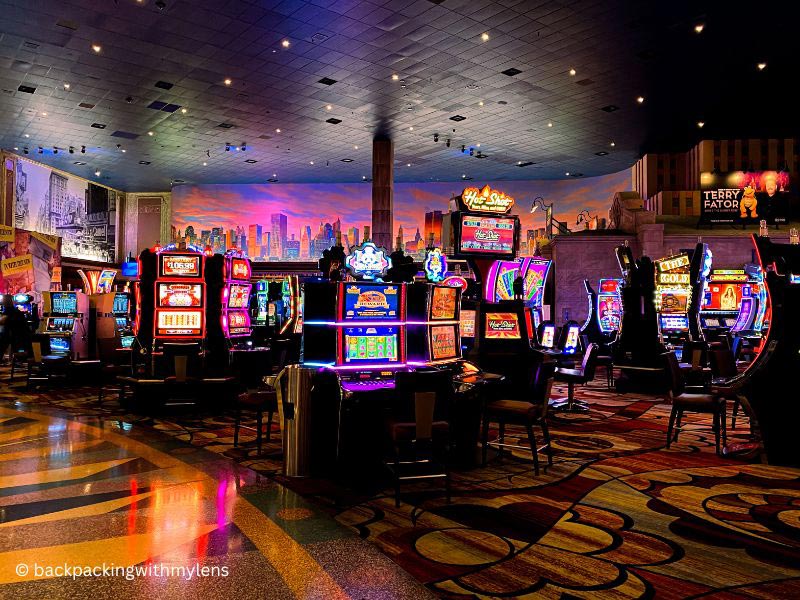Casino gaming has long been a subject of interest and controversy, attracting millions of players around the world. With a mix of chance, strategy, and the thrill of uncertainty, casino games offer an exciting escape from everyday life. However, as entertainment becomes ever more accessible, it calls for a more thorough examination of the morality surrounding these games.
At the heart of the debate lies the question of whether casinos promote responsible gaming or exploit at-risk individuals. The appeal of potential winnings versus the truth of losses can create a complex dynamic, and understanding this balance is essential for both players and operators. As we delve into the morals of casino gaming, we will explore the duties of casinos, the effects on society, and the measures that can be taken to foster a better gaming environment.
The Impact of Casino Gaming on Society
Casino gaming has a significant influence on societal dynamics, affecting not only the financial landscape but also social behaviors and local frameworks. The income generated from casinos can lead to employment opportunities and boost regional economies, as they provide various employment opportunities in different sectors including food and beverage, leisure activities, and shopping. However, while the economic advantages can be substantial, communities often struggle with the potential negative impacts that arise from increased gambling activity.
Moreover, the presence of casinos can lead to an rise in gambling addiction, presenting serious challenges for players and families. The excitement of casino games can quickly transform into a habitual habit, affecting connections with others and leading to monetary issues. Many individuals may find it difficult with the loss of control over their gambling behaviors, resulting in a need for assistance programs and interventions to address this increasing issue. The social cost of gambling addiction can extend through kinships and neighborhoods, creating an urgent need for responsible gaming initiatives.
In addition to the economic and social consequences, casino gaming often reflects cultural attitudes towards uncertainty and entertainment. It can encourage a sense of excitement and leisure, attracting visitors and boosting tourism. However, this allure may also conceal the wider implications of gambling as a form of entertainment, raising ethical questions about its promotion and availability. As communities weigh the advantages and drawbacks of casino gaming, the need for sensible approaches and oversight becomes increasingly critical in ensuring that the positive aspects are maximized while reducing the negative effects.
Ethical Concerns in Gambling Activities
The morality of gambling gaming often center around the potential for dependency and its consequences on people and households. Betting can lead to serious financial distress, impacting not only the betters but also their families. As people become caught in the allure of winning, many lose track of their budget, which can result in catastrophic results such as bankruptcy. This poses moral questions about the duty of gambling establishments in fostering safe gaming practices and providing support for those who may be dealing with gambling addiction.
Another critical issue is the promotion of gambling to at-risk groups. Gambling establishments often aim at low-income people or communities with the promise of fast rewards, which can perpetuate patterns of financial struggle and hopelessness. In this situation, the ethics of advertising strategies used by gambling establishments come under examination, as they may exploit the desperation of individuals seeking an escape from economic troubles. This exploitation raises ethical questions about the integrity of the gambling industry and its obligation to protect its most at-risk customers.
Additionally, the impact of gambling gaming on society as a whole cannot be ignored. While some argue that casinos create employment and boost local economies, others point to the community costs associated with problem betting, increased criminal rates, and a strain on public resources. đá gà trực tiế Balancing financial advantages with the potential for social harm presents a challenging moral dilemma for policymakers and gambling operators alike. The difficulty lies in discovering a ethical approach that prioritizes the well-being of individuals and communities while still allowing for the pleasure of casino gaming.

Regulatory System and Responsibilities
The oversight framework related to casino games is created to ensure equity, integrity, and gambler safety. Different government agencies and gaming commissions establish and enforce regulations that dictate how casino activities operate, the criteria for product development, and the protocols for handling winnings. These regulations change by region but typically involve permit requirements for providers and rigorous measures to prevent cheating and scams.
In furthermore to regulatory bodies, casino operators bear significant duty in preserving ethical standards within their facilities. They must implement ethical player practices that support gambler safety and consciousness, including providing self-limitation options and providing information about the risks connected to gaming. Establishments are also responsible for educating employees to spot signs of problem betting and know the proper measures to support customers in distress.
Additionally, openness in gambling operations is essential for building and maintaining public confidence. Operators should provide clear data about the odds of activities, marketing opportunities, and any related hazards. By promoting an culture of integrity and accountability, operators can help lessen the potential adverse impact of betting while improving the overall gaming experience for all gamblers.
